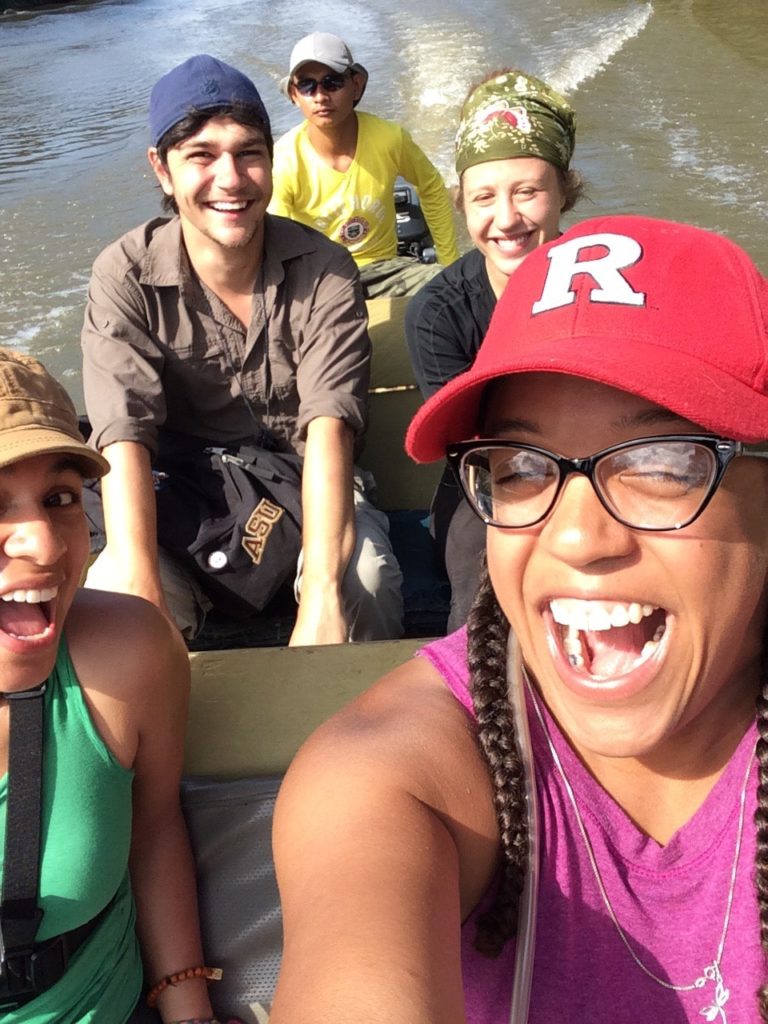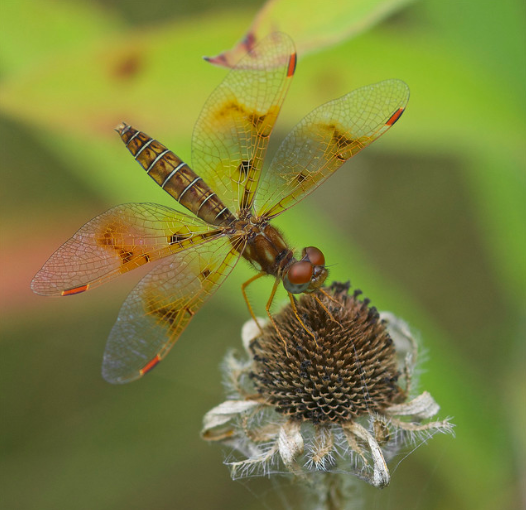Dr. Jessica Ware is an evolutionary biologist and entomologist at Rutgers University. Earlier this year, she received the Presidential Early Career Award for Scientists and Engineers (PECASE), the highest honor bestowed by the U.S. government to outstanding scientists and engineers beginning their independent research careers and showing exceptional promise for leadership in science and technology. Her area of expertise is dragonflies, the first creatures on Earth to take flight over 400 million years ago. Today, NYC alone is home to more than 80 species of dragonflies! You can meet Dr. Ware at the next Secret Science Club lecture taking place on Tuesday, August 20th, at the Bell House in Brooklyn.
Why should someone become an entomologist?
Entomology is a terrific, exciting, constantly changing field—there are more species of insects than almost anything else on earth, and much of this diversity is still yet to be described or even discovered. How amazing to have millions, literally, of species still left to discover! There are so many facets of this discipline, from studying their evolution, to describing and evaluating their taxonomic relationships, to treating medically important vectors of human or animal illnesses, to helping secure and protect food crops worldwide. The community of global entomologists and the aspects they study are almost as diverse as the insects themselves! People can check out the Entomological Society of America for information on all things insect related!
Why did you decide to focus your research on dragonflies?
Dragonflies and damselflies are in a order of insects, the Odonata, that are among the earliest branching lineages in the insect tree of life. They’ve been around a long time, and were among the first things flying, well before birds, bats and pterosaurs. Despite how colourful and appealing they are, how ubiquitous they are around water, and how commonly beloved they are, there is still so very much that we don’t know about their ecology, behaviour and evolutionary history. Working on dragonflies is fascinating from a deep time perspective, but also they rapidly respond to environmental disruption (warming, habitat shifts, etc) since they are so highly mobile, which makes they invaluable during our current period of climate change.

What’s a surprising way that dragonflies impact human life?
Well, if you hate blackfly, horsefly and mosquito bites as much as I do, you can thank a dragonfly for keeping those fly populations in check. Both as larvae, which develop in fresh water, and as adults, dragonflies and damselflies are voracious predators consuming many of the aerial pests we despise (and research has shown they consume a large number of malaria vectors, such as Anopheles mosquitoes).
How have dragonflies evolved to adapt to humans?
Well, I don’t know that we can say that they have “adapted” to humans, but certainly as humans alter the landscape dragonflies can respond to those changes in a variety of ways. When humans add ponds to their backyards, or even swimming pools (!), dragonflies quickly move in to lay their eggs; as temperatures have risen in parts of the world, southern species may expand their ranges northward; as habitat has been lost, species may even become outcompeted by other taxa and may be lost.
What’s the coolest spot in NYC for a bug enthusiast?
When I was in grad school I went to the tropics and saw a colourful, amber winged dragonfly that was the most beautiful thing I’d ever seen. I spent forty minutes perched on a log jutting out into caiman infested water, trying to catch it. I finally did, and brought it back to NJ for my collection. Later that summer, I went to Central Park and sat on the banks of the Harlem Meer–low and behold that same amber winged dragonfly was there (Perithemis)!

We have over 180 species of dragonflies and damselflies in the NJ/NY/PA area, and many are found right in Central Park! I have seem beautiful twelve spotted skimmers (Libellula pulchella) there and gorgeous pennants (Celithemis) right off of Central Park west! If you like insects, start with your local green spaces—if there is water, however small the body of water, dragonflies will be there!


